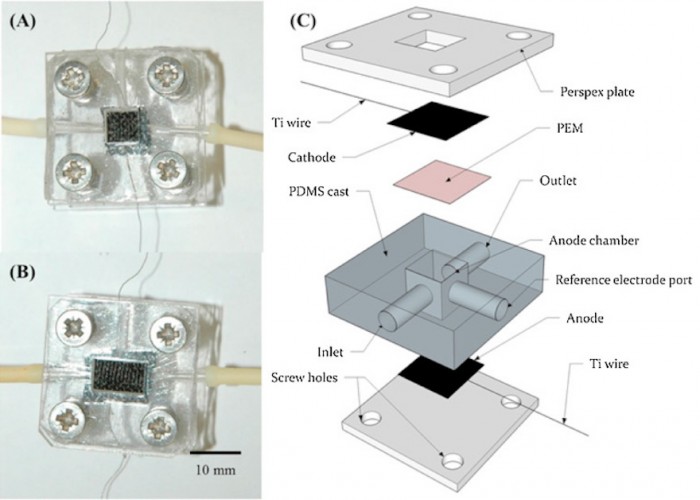Pressure to develop new forms of renewable energy is on the rise as the world becomes more and more conscious of our depleted fossil fuel supply and the harmful effect these energy sources have on the environment.
In particular, developing nations are in desperate need of alternative ways to produce energy – ways that are eco-friendly and cost-effective. Researchers from the University of Bath, Queen Mary University of London and the Bristol Robotics Laboratory believe they’ve designed one such method.
According to Science Daily, microbial fuel cells are devices that use the natural processes of certain bacteria to turn organic matter like urine into electricity. They’re efficient, relatively cheaper to run than other methods and they produce less waste than other methods.
The device’s only drawbacks are that they can be expensive to manufacture and they produce less power than other methods. Considering the huge amount of urine we produce, microbial fuel cells could be a game changer for renewable energy.
To make the device accessible to developing nations, the researchers replaced the device’s platinum cathode with carbon cloth and titanium wire. To speed up the reaction process and create more power, the developers used a catalyst made of food waste products (glucose and ovalbumin).
Going a step further, the researchers increased the length of the electrodes, from 4mm to 8mm. By stacking up three of the microbial fuel cells, the researchers were able to increase the power tenfold.
"Microbial fuel cells could be a great source of energy in developing countries, particularly in impoverished and rural areas," said Jon Chouler, lead author of the study from the University of Bath. "Our new design is cheaper and more powerful than traditional models. Devices like this that can produce electricity from urine could make a real difference by producing sustainable energy from waste."







